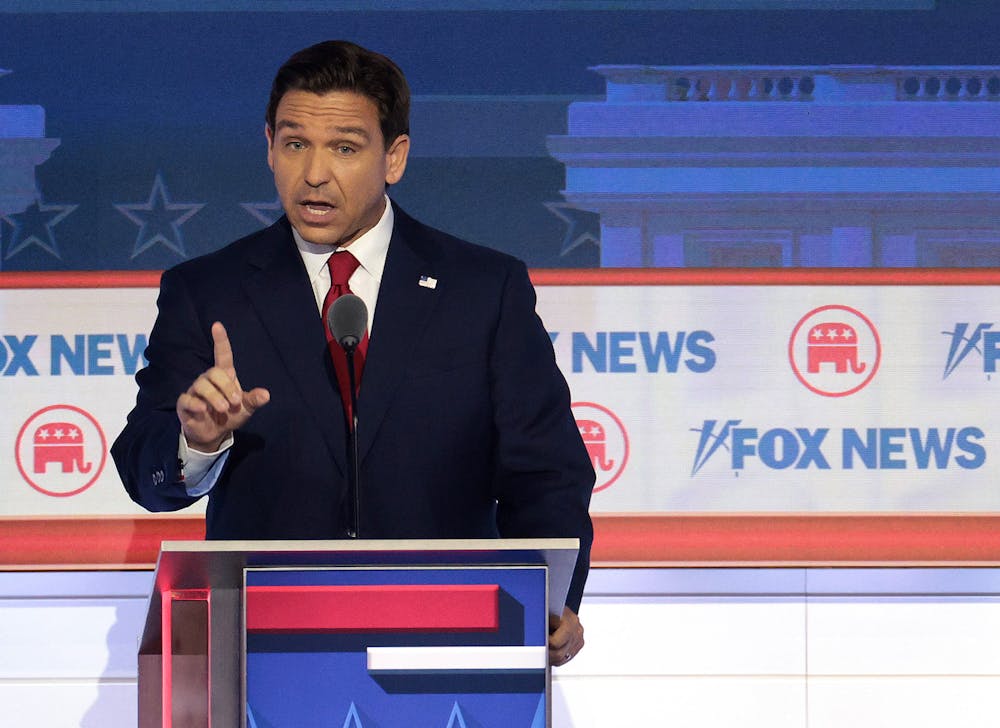On Aug. 23, the first GOP debate of the 2024 presidential election cycle took place in Milwaukee, WI. Moderated by FOX News mainstays Martha MacCallum and Bret Baier, the event provided a platform for the Republican candidates to influence the party’s trajectory on politics and show the public their plans for the future of America.
Among the contenders for the party vote were Ron DeSantis, Doug Burgum, Chris Christie, Nikki Haley, Asa Hutchinson, Mike Pence, Vivek Ramaswamy and Tim Scott.
During the debate, several pressing issues took center stage, hinting at what’s to come for the nation and Republican party. While the candidates bumped heads discussing climate change and abortion, there seemed to be little to no disagreement on the nation’s current immigration status.
The dominating issue in United States politics, for much of its existence, has been immigration. As the nation grapples with immigration reform, candidates offered a spectrum of opinions on border security, pathways to citizenship and ending Mexican cartels.
While many plans of action were addressed, each candidate was in full support of finishing the border wall and implementing harsher military responses. According to an article by the National Library of Medicine, policies limiting immigrants’ rights harm Latinx communities by causing more poverty in households, reduced lower educational opportunities for children, and decreasing civic engagement. By implementing these policies, the negative effects these plans have on Hispanic communities in America, Mexico and Central America are inevitable.
When asked whether he would send military forces into Mexico to fight drug cartels, Gov. Ron DeSantis of Florida was eager to emphasize his plan for this issue.
“When these drug pushers are bringing fentanyl across the border, that is going to be the last thing they do,” DeSantis said during the debate. "We are going to use force and leave them stone-cold dead.”
While there is an ongoing issue with Mexican cartels, adding a military presence and building a wall on the Southern Border will not benefit America. Instead, it will continue to stereotype Mexican and Hispanic communities as both criminals and addicts.
Speakers also discussed the citizenship process. Chris Christie, former governor of New Jersey, called for incarceration for anyone entering the country illegally.
“We have so many wonderful people from around the world who are waiting in line following the law to try to come here and pursue the American dream,” Christie said in the debate. “Those people are waiting and waiting because we haven’t dealt with the [issue] of the folks who are here.”
While urging Hispanic and Mexican immigrants to comply with the legal immigration process, the complexities reveal that it’s a more complicated path than one may think. The process to become a U.S. Citizen is not only difficult but it also takes years to satisfy the requirements.
According to the Pew Research Center, Mexican immigrants are the least likely to become U.S. citizens. Limited availability of time and motivation, lower English proficiency and the cost of the application all decrease the chances for Hispanic and Latinx migrants to gain citizenship. Proving that American politicians do not understand the law they set in place, it goes to show that Mexican and Hispanic people are the least of their worries when it comes to providing U.S. citizenship to migrants.
Though the debate was tailored towards American conservatives, the current plans and policies make life more difficult for any minority group in America. Moreover, these policies not only encourage biases and prejudices towards Mexican and Hispanic communities but provide a glimpse of the future laws that will be working against minority groups in America.






